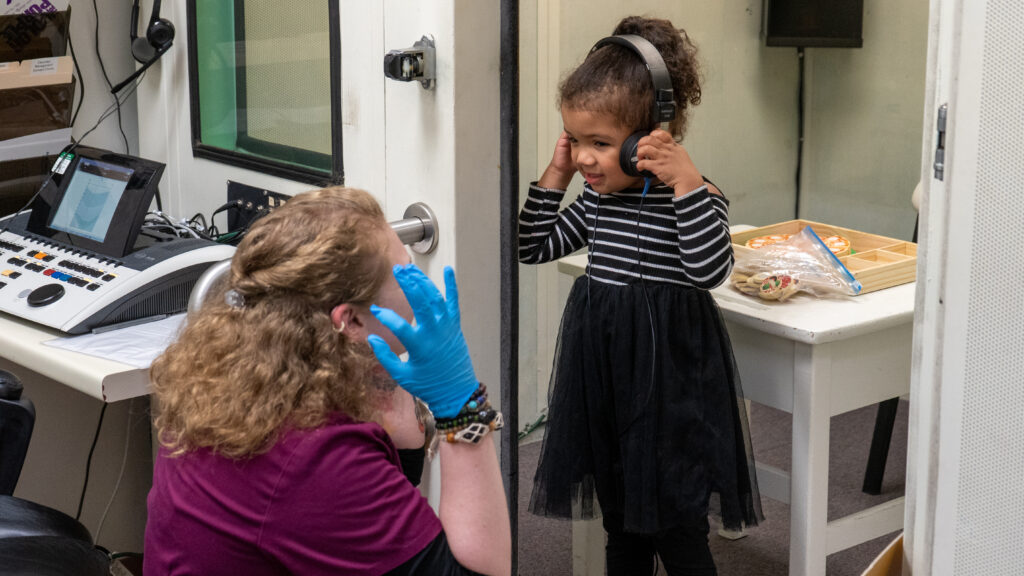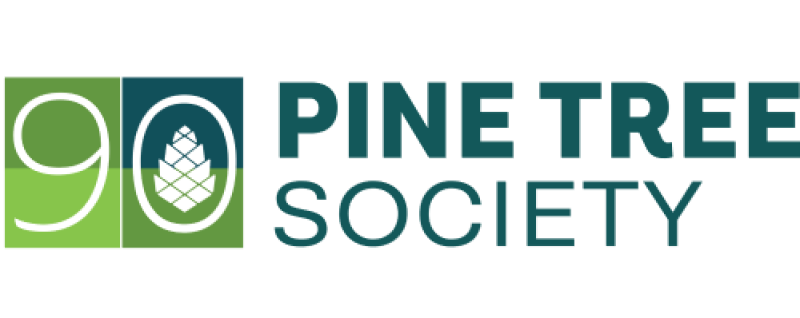
Hearing loss is the most common birth defect in the United States.
According to the National Institutes of Health, two or three of every 1,000 babies are born with a detectable level of hearing loss in one or both ears.
“The impact of not identifying and addressing hearing loss early on can have life-long negative consequences on all aspects of a child’s development,” said Dr. Ayris Franklin, Clinical Audiologist and Director of Pine Tree Society’s Bath-based Audiology program. “Speech delay, global development delay, autism and other attention issues can actually be hearing loss. They present in similar ways behaviorally, so the key is receiving the appropriate diagnoses as early as possible so the child can receive the very best support.”
According to the Center for Disease Control, hearing loss can affect a child’s ability to develop speech, language and social skills. The earlier children with hearing loss start receiving services, the more likely they are to reach their full potential.
“Ideally, every child born in the United States is screened for hearing at birth,” Dr. Franklin said. “If hearing loss is detected or if the child has risk factors, follow-up testing is required. However, this type of follow-up testing is scarce which can cause children to get lost and delay important intervention.”
The gold standard for evaluating infants is measuring their brain waves during sleep to determine hearing levels.
This Auditory Brainstem Response (ABR) test is a safe and painless way to measure how the child’s hearing nerves and brain respond to sounds.
“ABR testing will give parents and providers the information they need to make decisions on appropriate interventions including learning ways to communicate, speech therapy and technology such as hearing aids or cochlear implants,” said Dr. Franklin. “For example, with information from the ABR test, we will be able to fit infants as young as three months old with hearing aids; which is the ideal time for early intervention.”
Today, ABR testing is available in about a half dozen sites located in Central and Southern Maine, leaving families to deal with long wait times and significant travel to access appointments.
“With no ABR testing sites in the Midcoast region, we saw a strong opportunity to expand our services and meet an unmet need for those living in this region,” said Noel Sullivan, Pine Tree Society’s President and CEO. “As an organization, Pine Tree Society is always looking for ways we can expand our impact to meet unmet needs in Maine. Expanding our audiological services to offer hearing testing for infants made perfect sense based on our expertise and the gap in services in our community.”
Pine Tree Society is partnering with The Maine Educational Center for the Deaf and Hard of Hearing (MECDHH) to offer ABR testing.
MECDHH is providing Pine Tree Society with the ABR testing equipment as well as connections to areas of need. In addition, Pine Tree Society plans to purchase an additional hearing testing booth as part of the expansion.
“Pine Tree Society’s expansion to offer ABR testing will make a tremendous impact to families in our region,” said Dr. Franklin. “Not only will this mean greater accessibility to infant hearing testing but families will also have easy access to Pine Tree Society’s complementary services like speech therapy, Assistive Technology services and case management to address their child’s needs.”


